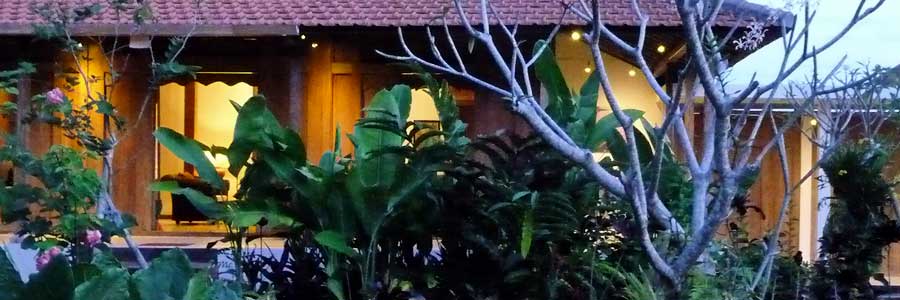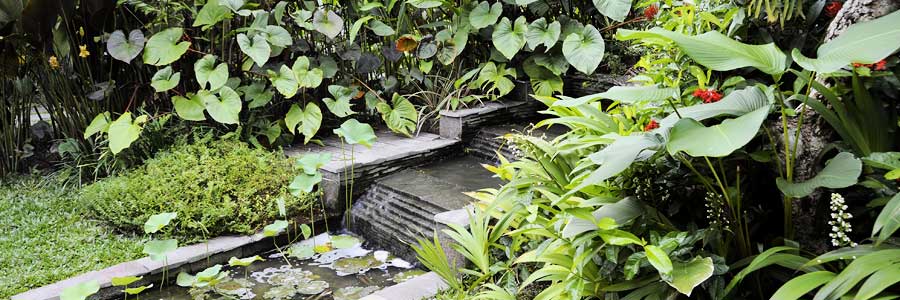Sustainable Design
Recycled Materials
Over 99% of the structural timber in each house at Umajati is recycled (the only exceptions are the frames for the glass doors and windows). Most of the furniture is either antique or has been elegantly refashioned from the builder’s off-cuts.
Wastewater Gardens
The wastewater gardens for each building at Umajati employ an innovative filtration method in the form of a constructed wetland that cleans gray and black water without smells or the possibility of human contact. Specific plants are grown in gravel beds, through which the waste water flows. As the water filters through the gravel, the roots of the plants clean it to safe levels before it is released into a leach field and allowed to slowly release back into the ground. The systems effectively clean the grey water from the showers, sinks and kitchen as well as the black water from the toilets, keeping all water on site. With a growing population burdening Bali’s water supplies with inefficient waste water systems, the island is in need of many more examples of viable solutions such as those employed at Umajati.
Passive Solar Design
The high roofs and long porches of the traditional Javanese houses used at Umajati offer a classic example of passive solar cooling. Air heated by the sun on the roof rises up inside the volume of the roof and draws cool breezes into the structure through its doors and windows. Each room has at least one window secured by open ironwork that can be left open day and night to draw in the beautiful breezes that come off the rice fields, and reduce the need for air conditioning.
LED Lighting
An LED system can approach 80% efficiency, which means 80% of the electricity becomes light. The other 20% is lost as heat. By contrast, incandescent bulbs operate at about 20% efficiency, with 80% of energy lost as heat. That’s a 75% saving, which could be crucial to Bali’s future if replicated. The Indonesian government’s subsidy of the electricity supply and its high import tariffs on the deep-cycle batteries used for solar power arrays make solar generation of electricity an unaffordable option. Yet the electricity supply represents one of Bali’s biggest infrastructure problems with all power currently coming over the grid from Java. There are plans to address this by building two large coal-fired power stations on the island. The environmental costs of this will be high. Examples of energy efficient, replicable solutions, like the LED system at Umajati, are needed if this cost is to be avoided.
Composting and Recycling
Composting and recycling are the cornerstones of any accommodation’s environmental efforts. Umajati’s food scraps and garden cuttings are composted on site and reused in the garden. Though recyclables are collected and sorted before processing, our efforts in this area are to minimize the initial consumption, particularly plastic packaging.
Umajati's Mission

Umajati is about cultural integrity, care for the environment, and sustainable livelihoods. A percentage of sales are committed to conservation and livelihood development across Indonesia, giving targeted, long-term mentoring to community groups for sustainable change. This work is done through the Bebali Foundation and the network of communities with which it works.
Read More





